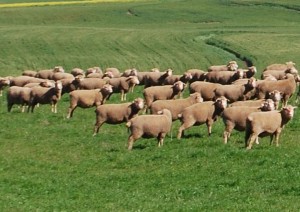FLY-FARMER AgriProtein today entered the prestigious 2017 Global Cleantech 100 list in recognition of its contribution to tackling the waste crisis and helping repair the environment.
The first commercial-scale insect meal producer in the world, AgriProtein builds and operates its own fly-farms and licenses its technology around the world.
 A leader in the fast-growing waste-to-nutrient recycling industry, AgriProtein produces insect meal for animal feed by rearing black soldier fly larvae on organic waste that would otherwise go to landfill. The larvae are harvested to make high-protein feed products and ingredients as an alternative to fishmeal.
A leader in the fast-growing waste-to-nutrient recycling industry, AgriProtein produces insect meal for animal feed by rearing black soldier fly larvae on organic waste that would otherwise go to landfill. The larvae are harvested to make high-protein feed products and ingredients as an alternative to fishmeal.
Said David Drew, European Director at AgriProtein: “Bringing sustainable protein feeds to the aquaculture and agriculture market is just the forward-facing part of our business. On the supply side we are able to divert thousands of tonnes of organic waste away from landfill as part of our insect-based nutrient up-cycling process. We make 100% natural, sustainable protein created from unsustainable waste piles.”
The world’s biggest fly-farmer, AgriProtein won an AUD 450,000 award in December for its industrially-scalable solution to the depletion of fish stocks in the Indian Ocean in the Australian government-backed Blue Economy Challenge 2016. In November it raised USD 17.5 million for further expansion, valuing it at USD 117 million and making it the most valuable fly-farming business in the world.
Now in its eighth year and run by CTG, (Cleantech Group) Global Cleantech 100 represents the most innovative and promising ideas impacting the future of a wide-range of industries. Featuring companies that are best positioned to solve tomorrow’s clean technology challenges, it is a comprehensive list of private companies with the highest potential to make significant market impact within a five to 10 year timeframe.
Said Richard Youngman, CEO of CTG: “We see more signals this year of the ongoing mainstreaming of clean technologies, sustainability, and resource efficiency on its journey towards the point where this is just the normal way business is done.”
To qualify for the Global Cleantech 100, companies must be independent, for-profit, cleantech companies that are not listed on any major stock exchange. This year, a record number of nominations were received: 9,900 distinct companies from 77 countries. These companies were weighted and scored to create a short list of 325 companies. Short-listed nominees were reviewed by CTG’s Expert Panel, resulting in a finalized list of 100 companies from 17 countries.